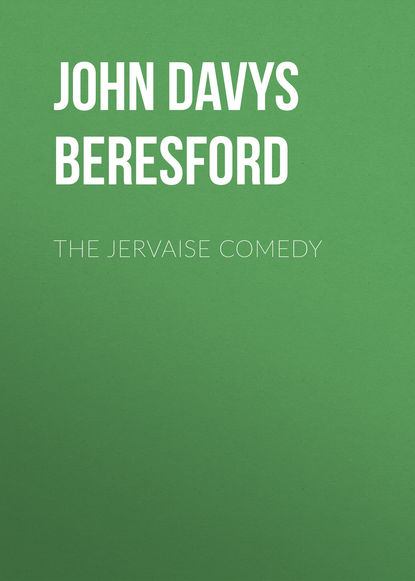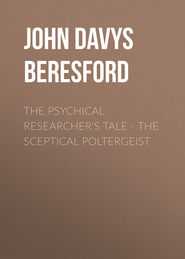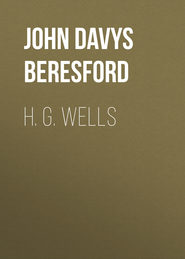По всем вопросам обращайтесь на: info@litportal.ru
(©) 2003-2024.
✖
The Jervaise Comedy
Автор
Год написания книги
2018
Настройки чтения
Размер шрифта
Высота строк
Поля
“Well, no, thanks. I think not,” I said, seeking the relief afforded by the women’s absence; although, now, that I could indulge my desire without restraint, the longing to gape had surprisingly vanished.
“Going to bed?” Jervaise suggested.
“Yes. Bed’s the best place, just now,” I lied.
“Right oh! Good-night, old chap,” Ronnie said effusively.
I pretended to be going upstairs and they did not wait for me to disappear. As soon as they had left the Hall, I sneaked down again, recovered from the cloak-room the light overcoat I had worn on our expedition to the Farm—I have no idea to whom that overcoat belonged—borrowed a cap, and let myself out stealthily by the front door.
As I quietly shut the door behind me, a delicious whiff of night-stock drifted by me, as if it had waited there for all those long hours seeking entrance to the stale, dry air of the Hall.
And it must have been, I think, that scent of night-stock which gave me the sense of a completed episode, or first act, as I stood alone, at last, on the gravel sweep before the Hall. Already the darkness was lifting. The dawn was coming high up in the sky, a sign of fair weather.
I have always had a sure sense of direction, and I turned instinctively towards the landmark of my promised destination, although it was invisible from that side of the Hall—screened by the avenue of tall forest trees, chiefly elms, that led up from the principal entrance to the Park. I had noticed one side road leading into this avenue as I had driven up from the station the previous afternoon, and I sought that turning now, with a feeling of certainty that it would take me in the right direction. As, indeed, it did; for it actually skirted the base of “Jervaise Clump,” which touched the extreme edge of the Park on that side.
As I cautiously felt my way down the avenue—it was still black dark under the dark trees—and later up the tunnel of the side road which I hit upon by an instinct that made me feel for it at the precise moment when I reached the point of its junction with the avenue—I returned with a sense of satisfaction to the memory of the last four hours. I was conscious of some kind of plan in the way the comedy of Brenda’s disappearance had been put before us. I realised that, as an art form, the plan was essentially undramatic, but the thought of it gave me, nevertheless, a distinct feeling of pleasure.
I saw the experience as a prelude to this lonely adventure of mine—a prelude full of movement and contrast; but I had no premonition of any equally diverting sequel.
The daylight was coming, and I believed, a trifle regretfully, that that great solvent of all mysteries would display these emotions of the night as the phantasmagoria of our imagination.
Before I had reached the end of the tunnel through the wood and had come out into the open whence I could, now, see the loom of Jervaise Clump swelling up before me in the deep, gray gloom of early dawn, I had decided that my suggestion had been prompted by an intuition of truth. Brenda had fallen under the spell of the moon, and gone for a long drive in the motor. She had taken Banks with her, obviously; but that action need not be presumed to have any romantic significance. And the Jervaises had accepted that solution. They had been more convinced of its truth than I had imagined. They would never have gone to bed, tired as they were, if they had not been satisfied that Brenda had committed no other indiscretion than that of indulging herself in the freak of a moonlight drive. It had, certainly, been unduly prolonged; but, as old Jervaise had said, there might be half a dozen reasons to account for that.
As I turned off the road and breasted the lower slopes of the hill, I was constructing the details of the Jervaises’ explanatory visit to the Atkinsons. I had reached the point of making Mrs. Jervaise repeat the statement she had made in the Hall that “dear Brenda was so impossibly headstrong,” when I heard the sweet, true notes of some one ahead of me, whistling, almost miraculously, in tune.
It isn’t one man in a million who can whistle absolutely true.
V
Daybreak
He was whistling Schubert’s setting of “Who is Sylvia?” and as I climbed slowly and as silently as I could towards him, I fitted the music to the words of the second verse:—
Is she kind as she is fair?
For beauty lives with kindness.
Only a man in love, I thought, could be whistling that air with such attention and accuracy. He hit that unusual interval—is it an augmented seventh?—with a delicacy that was quite thrilling.
He had the world to himself, as yet. The birds of the morning had not begun their orisons, while the birds of the night, the owls and the corncrakes had, happily, retired before the promise of that weakening darkness which seemed nevertheless to have reached a moment of suspense—indeed, I fancied that it was darker, now, than when I had come out of the Hall a quarter of an hour before.
The whistler had stopped before I reached the crest of the hill, and after trying vainly to locate his whereabouts in the gloom, I leaned up against one of the outermost trunks of the perky little clump of trees, and facing East awaited developments. A thin, cold wind had sprung up, and was quietly stirring the leaves above me to an uneasy sibilance. I heard, now, too, an occasional sleepy twitter as if a few members of the orchestra had come into their places and were indolently testing the tune of their pipes. It came into my mind that the cold stir of air was the spirit of the dying night, fleeing westward before the sun. Also, I found myself wondering what would be the effect on us all if one morning we waited in vain for the sunrise? I tried to picture my own emotions as the truth was slowly borne in upon me that some unprecedented calamity had silently and without any premonition befallen the whole world of men. Would one crouch in a terror of apprehension? I could not see it that way. I believed that I should be trembling with a furious excitement, stirred to the very depths by so inspiring and adventurous a miracle. I had forsaken my speculation and was indulging in the philosophical reflection that a real and quite unaccountable miracle, the more universal the better, would be the most splendid justification of life I could possibly conceive, when the whistler began again, only a few yards away from me.
I could just see him now, sitting propped against the trunk of another tree, but I waited until he had finished what I chose to believe was the third verse of his lyric before I hailed him. It came to me that I might test his quality by continuing the play in proper form, so when he paused, I went on with the speech of the “host” which immediately follows the song in “The Two Gentlemen of Verona.”
“How now?” I said. “Are you sadder than you were before?”
He did not move, not even to turn his head towards me, and I inferred that he was aware of my presence before I spoke.
“You, one of the search party?” he asked.
I went over and sat down by him. I felt that the situation was sufficiently fantastic to permit of free speech. I did not know who he was and I did not care. I only knew that I wanted to deliver myself of the dreams my lack of sleep had robbed from me.
“The only one,” I said, “unless you also belong to the very small and select party of searchers.”
I fancy that he turned his head a little towards me, but I kept my gaze fixed on the indigo masses of the obscure prospect before us.
“Who are you looking for?” he asked.
“Not so much who as what,” I said. “And even then it isn’t so easy to define. I’ve heard men call it beauty and mystery, and things like that; but just now it seemed to me that what I wanted most was a universal miracle—some really inexplicable happening that would upset every law the physicists have ever stated. I was thinking, for instance, how thrilling it would be if the sun did not rise this morning. One would know, then, that all our scientific guesses at laws were just so many baby speculations founded on nothing more substantial than a few thousand years of experience which had, by some chance given always more or less the same results. Like a long run on the red, you know.”
“I know,” he said. “Well? Go on.”
I was greatly stimulated by his encouragement. Here, at last, was the listener I had been waiting for all through the night.
“One gets so infernally sick of everything happening according to fixed rules,” I continued. “And the more you learn the nearer you are to the deadly ability of being able to foretell the future. If we ever do reach that point in our intellectual evolution, I only hope that I shan’t be there to see it. Imagine the awful ennui of a world where the expected always happened, and next year’s happenings were always expected! And yet we go on seeking after knowledge, when we ought surely to avoid it, as the universal kill joy.”
“Hm!” commented my new friend on what I felt to be a note of doubtful agreement.
“You don’t agree with that?” I asked.
“Well, I see what you’re after, in a way,” he acknowledged; “but it doesn’t seem to me that it amounts to very much—practically.”
I was a trifle disappointed. I had not expected any insistence on the practical from a man who could whistle Schubert and Shakespeare to the dawn.
“Oh, practically! Perhaps not,” I replied with a hint of contempt for anything so common.
He gave a little self-conscious laugh. “You can’t get away from the practical in this life,” he said. “Even in—” He seemed to bite off the beginning of confidence with an effort. “You may dream half the night,” he began again, with a thin assumption of making an impersonal statement, “but before the night’s over you’ll come up against the practical, or the practicable, or the proper right thing, or something, that makes you see what a fool you are. The way this world’s run, you can’t avoid it, anyhow.”
I knew that what he said was true, but I found it damping. It fitted all too well with the coming realism of day. The contours of the landscape were slowly resigning themselves to the formal attitudes imposed upon them by expectation. The blood of colour was beginning to run weakly through the monochrome. The nearer slopes of the hill and the leaves of the trees were already professing a resolute green. Moment by moment the familiar was taking prudent shape, preparing itself for the autocrat whose outriders were multitudinously busy about their warnings of his approach. Presently the scene would take on the natural beauty of our desire, but the actual process of transformation rather depressed me that morning. I had been so deeply in love with the night.
I took up my companion’s last sentence—spoken, I fancied, with a suggestion of brooding antagonism.
“You think the world might be ‘run,’ at least, more interestingly?” I put in.
“More sensibly,” he said in a voice that hinted a reserve of violence. “There’s no sense in it, the way we look at things. Only we don’t look at ’em, most of us, not with any intelligence. We just take everything for granted because we happen to be used to it, that’s all.”
“But would any form of socialism…” I tried tentatively.
“I don’t know that I’m a socialist,” he returned. “I don’t belong to any union, or anything of that kind.” He stopped and looked at me with a defiant stare that was quite visible now. “You know who I am, I suppose?” he challenged me.
“No idea,” I said.
“Banks, the chauffeur,” he said, as if he were giving himself up as a well-known criminal.
I was not entirely unprepared for that reply, but I had no tactful answer to make. I rejected the spontaneous impulse that arose, as I thought quite fantastically, to say “I believe I have met your sister;” and fell back on an orthodox “Well?” I tried to convey the effect that I still waited to be shocked.
“I suppose you’re staying up at the Hall?” he said.








